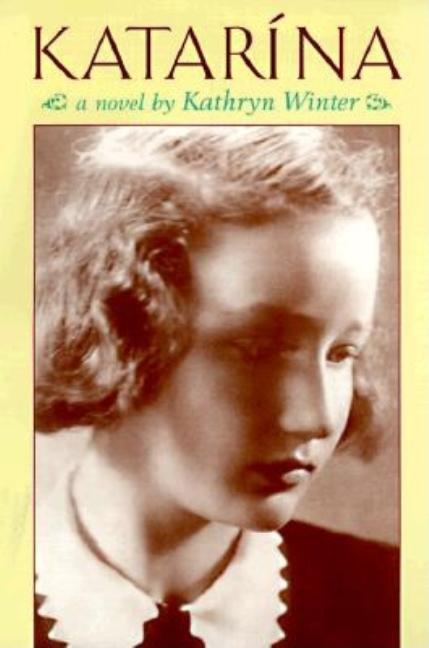Book Descriptions
for Katarina by Kathryn Winter
From Cooperative Children's Book Center (CCBC)
Author Kathryn Winter's affecting portrait of a child caught up in the confusing and frightening conditions of war is based in part on her own experiences growing up as a Jewish child in Slovakia during World War II. Katarína is only seven years old in 1942 when her Aunt Lena fools the doctor into thinking Katarína has scarlet fever. The house is put under quarantine and Aunt Lena explains that no one, not even the Halinka Guards, can enter. When she is "well" again, Katarína is not allowed to return to school--Jews have been forbidden from attending. As a child living with an aunt who doesn't observe Jewish laws and customs and therefore has no sense of a Jewish identity, Katarína finds as little logic in this as she does in the later silence of her best friend, Eva, who is Catholic and who fails to answer any of the letters Katarína sends to her after Katarína's aunt marries and they move to the city. And Katarína wants to share her big news with Eva--she is Catholic now, too. Her aunt and new uncle's housekeeper has been teaching her prayers and the rosary; she has even attended mass. When Eva's aunt sends her to stay with a Catholic family in the country, Katarína fights loneliness and sadness but remains firmly convinced that her aunt will return for her just as she promised, unaware of the dangers that her aunt and uncle, and she herself, are facing in a world gone crazy. It is this narrative's firmly grounded point of view in the mind of a child too young and too sheltered to put what is happening in her world into a context that in part makes this novel so compelling. At the same time, what can be read in and between the lines in the words and actions of the adults around Katarína affirms the gravity and the poignancy of the young girl's situation for readers, who will bring knowledge of the Holocaust to their understanding of the novel. The setting in Eastern Europe adds a layer of added interest as the seeds of future Soviet dominance in the region are sewn in the then- welcome arrival by adults around Katarína of the Russian troops as Slovakia's liberators from the Germans. (Age 13 and older)
CCBC Choices 1998. © Cooperative Children's Book Center, Univ. of Wisconsin - Madison, 1998. Used with permission.
From the Publisher
During World War II, a Jewish orphan is living with her aunt and uncle when she is rounded up with other Jews, and sent to live in a peasant household. When her Judaism is discovered, she is asked to leave and wanders from village to village, confused by the threat that hangs over her, but maintained by a fierce belief in her eventual return to her family.
Publisher description retrieved from Google Books.


